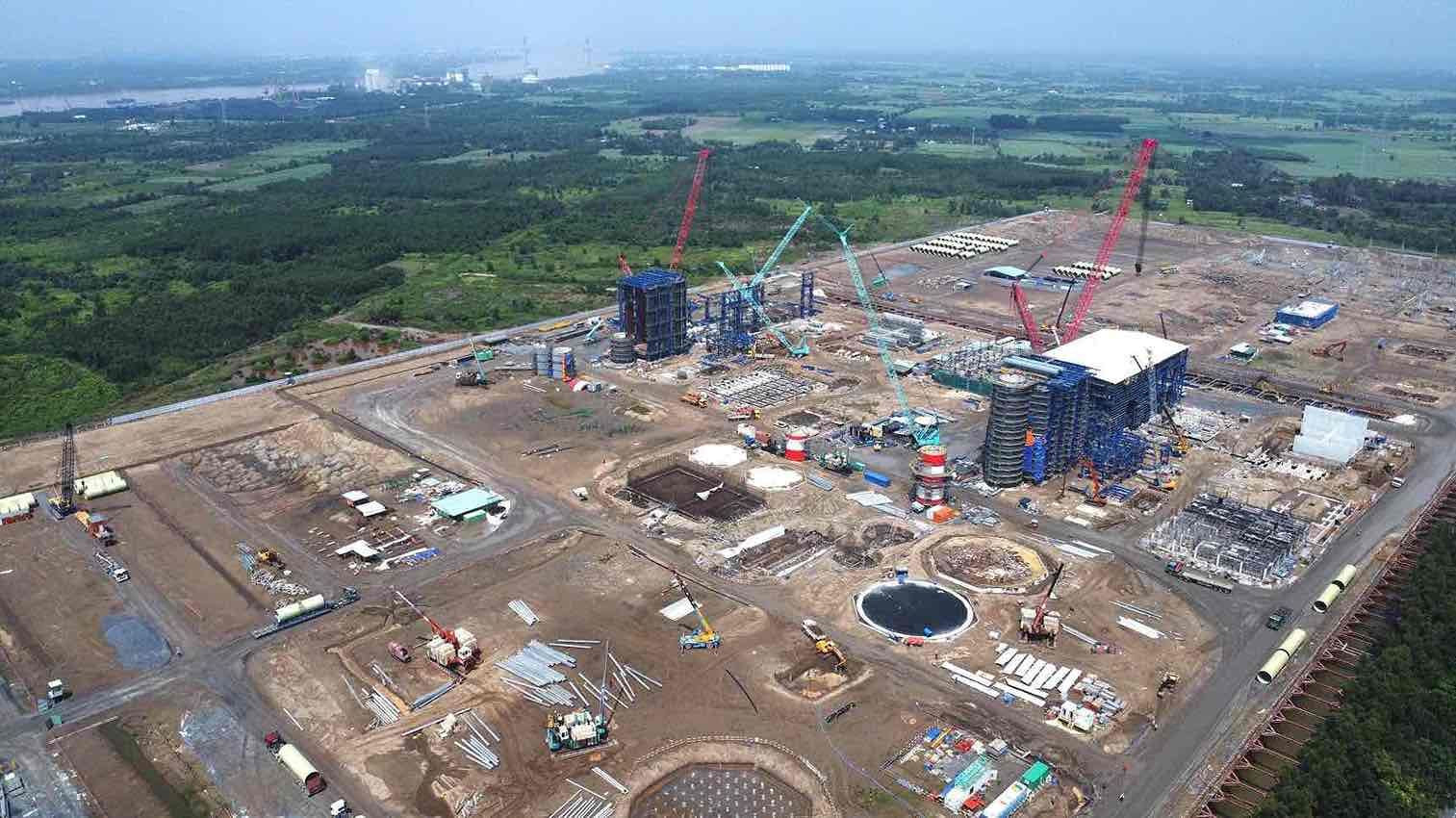
Electricity of Vietnam (EVN) has sent a document to the Prime Minister reporting problems in implementing LNG-fired power projects shown in the eighth national power development plan (Plan 8).
To date, EVN has received dossiers for negotiations for PPA (power purchase agreement) from Nhon Trach 3 and 4, Hiep Phuoc and Bac Lieu projects.
Of these, only the PPAs with Nhon Trach 3 and 4 have been negotiated with PVPower (the investor) in accordance with the PPA form prescribed in Circular 57/2020 released by the Ministry of Industry and Trade (MOIT).
The parties have agreed on some articles of PPA, but the pricing mechanism is still under negotiation, according to EVN.
Meanwhile, the negotiation for Hiep Phuoc project just began in early 2024. As for the other projects, investors are still under preparation for investments (designing projects, building feasibility studies and following necessary legal procedures).
One of the problems is that the investors have made proposals which are different from that in the PPA form stipulated in Circular 57. As a result, the negotiations for PPA still cannot be conducted.
During negotiations, the investors of LNG projects repeatedly asked EVN to accept to buy 72-90 percent electricity output for the whole life of the contracts.
Meanwhile, EVN warned that if it accepts the proposal, this may lead to electricity price increases, and will be unfair for other electricity generators in the electricity market.
LNG is an expensive fuel (LNG prices at Vietnam’s ports are $12-14 per million of BTU), so LNG-fired electricity production cost would be high, between VND2,400 and VND2,800 per kwh, much higher than production costs of other power plants.
Plan 8 says that the total capacity of all sources of electricity by 2030 would account for 15 percent of total electricity capacity of the country.
“With such a high production cost, the heavy fluctuations and required commitments for long-term LNG-fired power purchases, EVN’s expenses to buy electricity will be higher, thus affecting retail electricity prices when LNG-fired power sources become operational,” the document said.
Also, if EVN buys big volumes of LNG-fired power for a long time as proposed by investors, it will face financial risks if demand for electricity is not high in certain years.
And if the commitment to purchase LNG-fired electricity is valid for a long time, this will be unfair for other power plants using other kinds of fuel. Currently, EVN has not committed to buy electricity from other plants for a long period, but signs a PPA every year after considering real demand.
However, amid the predicted power shortages in upcoming years, EVN thinks that committing to purchase a certain proportion of electricity output of LNG-fired power plants under long-term contracts is a necessity to ensure harmonious benefits for the state and investors. This will be decided by agencies and will be applied to all power projects. The proportion proposed by EVN is 65 percent.
Thorny problems
In addition to the ‘thorny’ proposals related to electricity pricing, during negotiations, EVN has heard other unusual proposals.
The investors, for example, proposed the application of laws of third countries (the UK’s law, for example) for PPA. They also proposed settling disputes at foreign arbitrators.
However, EVN has rejected the application of non-Vietnamese laws, citing regulations in the Investment Law and the Law on Investment under PPP (private public partnership) mode which says that disputes must be settled at Vietnam’s Arbitrators or Vietnam’s Courts.
Also, the investors want the government’s guarantee for the currency conversion rights. The proposal comes from the fact that power investors sell electricity at Vietnam dong, but they have to convert to foreign currency to pay for loan interest and monthly fuel.
The investors have also asked for the mechanism to compensate them if the laws change; the mechanism to terminate contracts and the right of the lenders for the projects.
“The above requirements come from the precedent provisions applied to BOT (build, operation, transfer) power projects in the past. They are not the provisions of PPAs and not within the jurisdiction of EVN,” the document reads.
EVN asked the Prime Minister to consider and make decisions on the problems mentioned above.
It is estimated that the annual electricity output shortage from 2028 will be 800-1.2 billion kwh a year.
Luong Bang